- Home
- Vladimir Nabokov
Vladimir Nabokov: Selected Letters 1940-1977 Page 8
Vladimir Nabokov: Selected Letters 1940-1977 Read online
Page 8
Sincerely yours,
TO: ALLEN TATE
CC, 1 p.
8 Craigie Circle
Cambridge 38, Mass.
28 January 1947
Dear Allen,
I am very much bored with Laughlin of the New Directions. Do you think Holt might be interested in buying from him all my contracts in toto? All the advances have already been covered, and the editions pretty near sold out. If you think that this might work, I shall suggest to Laughlin my buying back all my rights from him. This will probably result in lower price than if another publisher made the inquiry. But I should only do this at the present time, if Holt would back me. Laughlin has now three books of mine: SEBASTIAN, the GOGOL book and LAUGHTER IN THE DARK which he bought from Bobbs-Merrill, the original publisher. THE THREE POETS contract has expired.
Has anything been done about the dust jacket for B.S.?1 I should like it to be as sober as possible.
And finally: you would very much oblige me if you now could have the second half of the advance sent to me.
Sincerely yours,
TO: ELIZABETH MARINEL ALLAN AND MARUSSYA MARINEL
ALS, 1 p. M. Juliar.
8 Craigie Circle
Cambridge 38, Mass.
27 April, 1947
Dear Marussya and Lisa,
The downy "bird"1 and the enchanting present gave me tremendous pleasure. Thank you, dear friends! In response to Roshchin's breezy piece about Odessa you will soon read in Noviy zhurnal a poem I have recently composed.2 As for Russian prose, I seem to have completely lost the knack, but I can still manage verse. It is a poem about a three-day clandestine sojourn—or anyway a brief sojourn—of mine in Leningrad. In short, you'll see. I am very pleased with this little thing.
I have to devote this windy spring Sunday to diligent study of some sixty compositions by my students.
Keep well. How sad that we get together so seldom.
Yours,
V. Nabokov3
TO: MRS. DOUGLAS HORTON1
CC, 1 p.
Cambridge, Mass.
28th October 1947
Dear Mrs. Horton,
I have just come back from a trip to Ithaca where I talked with the President and with the Head of the Modern Languages Department. Cornell is interested in my joining the Faculty as Associate Professor of Literature. The offer tempts me particularly because the arrangement would be permanent.
Before getting too deeply involved with Cornell, I want to be clear about my position at Wellesley. Is it hurrying things too much if I ask for a prediction from you: do you see the possibility of a permanent appointment for me at Wellesley College beginning with September 1948?
Very sincerely yours,
TO: MORRIS BISHOP1
CC, 1 p.
8 Craigie Circle
Cambridge 38, Mass.
1 st November 1947
Dear Bishop,
Many thanks for your good letter and the charming enclosures.
Here are the answers to your questions:
Yes, my only academic degree is B.A. Cambridge University (Trinity College), England, 1922.
Though my time between then and 1940 was mainly devoted to literature, I also
gave instruction in Russian, French and English literature, in the beginning to individual pupils, later to small groups interested in these subjects;
accepted invitations from clubs and organizations to give one or more lectures on literary subjects. Such invitations arrived in increasing numbers from France, Belgium, Czechoslovakia, Austria and England, and also from various German towns where there existed (before the war) more or less numerous colonies of Russian émigrés;
wrote reviews of prose and poetry, first for the Russian émigré
newspaper RUL (Berlin), regularly for a number of years,—then, in a more scattered way, for various Russian (émigré) and foreign publications (such as the NOUVELLE REVUE FRANÇAISE, leading French magazine of literary criticism, for which I was asked to write an essay on Pushkin illustrated by my own verse translations into French, or LE MOIS, which asked me for a general short survey of new trends in literature, etc.). This kind of activity I continued after coming to the United States, where I contributed during the winter of 1940–41 pretty regularly literary reviews to the NEW REPUBLIC (under its old management), and less regularly to some other publications such as the N.Y. SUN and TIMES.
My major opus in the field of criticism is a critical biography of NIKOLAI GOGOL (New Directions Publ., 1944).
In 1941 I read at the Annual Meeting of the New England Modern Language Association an essay which was later published in the Bulletin of the organization under the title THE CREATIVE WRITER. An article THE LERMONTOV MIRAGE, with my own translations from the poet, was published in the RUSSIAN REVIEW, issue of November 1941.
I enclose a detailed list of publications.
Sincerely yours,
TO: KATHARINE A. WHITE
TLS, 1 p. Bryn Mawr College.
8 Craigie Circle
Cambridge 38, Mass.
10th November 1947
Dear Mrs. White,
As I wrote to you at the time, I deeply appreciated your sympathetic handling of "My Uncle".1 It is the principle itself of editing that distresses me.
I shall be very grateful to you if you help me to weed out bad grammar but I do not think I would like my longish sentences clipped too close, or those drawbridges lowered which I have taken such pains to lift. In other words, I would like to discriminate between awkward construction (which is bad) and a certain special—how shall I put it—sinuosity, which is my own and which only at first glance may seem awkward or obscure. Why not have the reader re-read a sentence now and then? It won't hurt him.
I repeat, however, that I appreciate your attitude and would gladly go over the story with you. If it is not too much trouble for you to come to Boston, it would be a great help, since I have had to go away on a trip a week ago and a repeated absence would be difficult to organize. It is extremely kind of you to suggest your coming here.
Very sincerely yours,
V. Nabokov2
TO: MRS. DOUGLAS HORTON
CC, 1 p.
Cambridge, Mass.
November 30, 1947
Dear Mrs. Horton,
Believe me I deeply appreciate your hope that it would be possible for me to continue my present work at Wellesley College and at the Harvard museum. In regard to the latter, I wish to say that the interruption will be only spatial since I shall be able to go on with my scientific research in Cornell's excellent entomological laboratory. I shall find there my good and celebrated friends, Professors Forbes and Bradley, and one of the finest entomological libraries in the country.
As to Wellesley the matter is different. You know how very much attached I am to the College. It is quite a wrench to leave it. However, certain very attractive aspects of the work I am offered at Cornell, together with the security of the position, lead me to accept their offer.
It is with the utmost reluctance that I now submit my formal resignation beginning with the ist of September 1948.
Very sincerely yours.
TO: PROFESSOR T. G. BERGIN1
CC, 1 p.
8 Craigie Circle
Cambridge 38, Mass.
30th November 1947
Dear Professor Bergin,
Many thanks for your very kind letter. It was a pleasure to meet you and Mrs. Bergin at that delightful party you gave.
What you say about the Literature course seems to me very attractive. I have been turning it over in my mind and I think I could prepare a course consisting of two parts echoing each other: Writers (Teachers, Storytellers, Enchanters) and Readers (Seekers of Knowledge, Entertainment, Magic). Of course, this is only a rough outline of the plan. I would include writers of various countries and categories. In planning the course, it is essential for me to know how many hours are to be devoted to it. I would also like to know the exact number of times my other c
lasses are to meet during the term.
Very sincerely yours,
P.S. I wonder if it would be possible, when making out my schedule, to have me lecture in the afternoons or, should this not be possible, at least not earlier than 10–11 a.m.
TO: MORRIS BISHOP
CC, 1 p.
8 Craigie Circle
Cambridge 38, Mass.
28th December 1947
Dear Bishop,
Yes, everything is perfectly clear now. I am sorry to have been so obtuse.
I suggest the following wording for the announcement:
101, 102. Survey of Russian Literature with emphasis on the XIX century. Throughout the year. Credit three hours a week. Prerequisite, proficiency in Russian. M.W.F. 11. Mr. Nabokov.
Lectures in Russian and classroom excercises on the development of Russian literature.
201, 202. Renaissance of Russian Poetry (1890–1925) Neoromanticism and neo-classicism. From Blok to Pasternak and Khodassevich. Throughout the year. Credit three hours a week. Prerequisite, proficiency in Russian. Mr. Nabokov. Hours to be arranged.
Extensive study of the poets of the period, matter and manner.
I am pleased to note that my lectures in 101, 102 will be at 11 (or was it just a sample of time?). Bergin writes me that my Div. of Lit. course is tentatively put down for M,W and F at 2. If my other Russian course could be at 12, immediately following the first, that would be a splendid arrangement. But please, if possible, do not put me down for an hour earlier than 11.
We both wish you both a very happy New Year. I was delighted to hear of your receiving the "rosette".1
Sincerely yours,
TO: COL. JOSEPH I. GREENE1
CC, 1 p.
Cambridge, Mass.
January 14, 1948
Dear Colonel Greene,
My husband has asked me to thank you for your letter of January 2, notifying him that the United States Government has elected the option on the German-Austrian translation and publication rights of his novel BEND SINISTER. He hopes that his book may help the re-educational program of the Government, though, knowing the Germans as we do, we cannot help entertaining some doubts as to their susceptibility to re-education.
At this point my husband thinks it essential to submit to you the following considerations:
One of the main subjects of BEND SINISTER is a rather vehement incrimination of a dictatorship—any dictatorship, and though the dictatorship actually represented in the book is imaginary, it deliberately displays features peculiar a) to nazism, b) to communism, c) to any dictatorial trends in an otherwise non-dictatorial order. It would be very easy for a biased translator to upset this balance. This, my husband believes, should be borne in mind when selecting the German translator. It would be even better, if the author could be given a chance to peruse the translation prior to publication.
Sincerely yours,
TO: PROF. WILLIAM T. M. FORBES
ALS, 1 p. Cornell University.
Cambridge, Mass.
12 II 1948
Dear Professor Forbes
I have great pleasure in informing you that I am joining your Faculty (as Associate Professor) and shall come to Cornell some time in summer.
I want to ask you whether it would be possible for me to go on with my lepidopt. research work at the Agric. Exper. Station? Could I have the use of microscopes (binoc. and mono.)? Do tell me if this is all feasible.
I am looking forward to seeing a lot of you next year.
Very sincerely yours,
V. Nabokov
TO: THE AMERICAN CONSUL PRAGUE, CZECHOSLOVAKIA
CC, 1 p.
8 Craigie Circle
Cambridge, Mass.
U.S.A.
26 February 1948
Dear Sir,
I am trying to arrange the immigration to the United States of my nephew, Rostislav Petkevich (Petkevic),1 aged 17, at the present time domiciliated at 12 Koulova, Prague, Dejvice. Owing to financial difficulties, his parents have never been able to take care of him so that he has always lived with my mother until she died in 1939. Since that time it has always been my wish to have him join me, but the fulfillment of this plan had to be postponed on account of the war. In 1940, I immigrated to the United States bringing with me my wife and son. In 1945 we became American citizens. Since my arrival in the United States I have, by degrees, achieved a position which, though still modest, appears sufficiently secure to warrant bringing my nephew over.
From the reports I have been getting, I believe that he is not only a gifted, but also an honest and decent lad, and one who deserves the chance that I wish to give him. I am convinced that, given the opportunity, he will develop into a good, and possibly a valuable, citizen who will serve his adopted fatherland to the best of his strength and ability.
Upon arrival to this country he will reside at the Reed Farm of the Tolstoy Foundation.
I hope that you will find it possible to approve my nephew's application for an American visa.
Yours faithfully,
I am enclosing Affidavits of Support and all supporting documents with required number of copies.
TO: DEAN C. W. DE KIEWIT1
CC, 1 p.
8 Craigie Circle
Cambridge 38, Mass.
21 March 1948
Dear Dean de Kiewit,
Many thanks for your kind letter. It is very interesting to hear that you have definite plans for the development of Russian studies at the University.
I entirely agree with you that courses in Russian Literature should not be limited to those given in Russian. Indeed, I know from experience that a course in this subject given in English has a strong appeal for students who have a general interest in literature,—the enrollment in such a course which I am giving currently at Wellesley College (they call it "Russian Literature in Translation") is one of the largest in the College. I would therefore welcome the arrangement originally suggested by Professor Bishop, namely that I give two courses in Russian (a general survey course and one more specialized, such as for instance on Russian poets of the revival period) and one in English (a general survey with emphasis on the XIX century). At one time it has been suggested that the idea of this latter course be abandoned and that instead I should give a course, or rather one section of a course in General Introduction to Literature. To this I agreed most reluctantly. Russian literature (both theory and practice of it) is my special field and I feel sure that this is the field in which students would profit most from my lectures. I was therefore highly gratified when the idea of a Russian Literature course given in English was recently revived. This arrangement—two courses in Russian and one in English—will, I believe, provide the best opportunity for me to offer and for the interested students to absorb the wealth of material represented by Russian literature and its history. I am very much looking forward to this work.
On the other hand, though sorry to disappoint you, I must tell you quite frankly that I am entirely lacking in administrative talents. I am a hopelessly poor organizer, and my participation in any committee would be, I am afraid, pretty worthless. I would, however, be delighted to assist in the selection of literary material, in Russian and in translation, worth being reproduced in microprint for the University library.
Very sincerely yours,
TO: DAVID HIGHAM1
CC, 1 p.
8 Craigie Circle
Cambridge 38, Mass.
24 March 1948
Dear Mr. Higham,
I wonder if you have seen the THREE POETS volume produced by Lindsay Drummond? While using my translations, bought from me as a collection, the publishers deemed it proper to present the book as "PUSHKIN, LERMONTOV, TYUTCHEV, POEMS, RUSSIAN LITERATURE LIBRARY 8" (on the dust jacket); the same thing minus the "Russian Literature Library 8" figures on the binding and again the same thing plus "Lindsay Drummond Limited, London, 1947" on the inside cover. Somewhere in between my name modestly appears following that of the lady who supplied
a number of entirely awful and out-of-place illustrations. Finally, a list of their publications, appended at the end under the heading "RUSSIAN LITERATURE LIBRARY EDITED BY STEFAN SCHIMANSKI", makes mention under "8" of "PUSHKIN, LERMONTOV, TYUTCHEV, POEMS. ILLUSTRATED BY DONIA NACHSHEN"—period. I nearly forgot to mention that the same list figures on one of the fly leafs, in smaller characters and this time omitting the illustrator.
There is no mention of me in the blurb. A Mr. Stefan Schimanski is named as "editor"—who the deuce is Mr. Schimanski and what has he been "editing" in my book? Apart from a couple of hideous misprints, due to the fact that I never saw the proofs, the translations appear exactly as I made them. Incidentally, since I get nowhere any credit for the three introductions, that credit automatically goes to the mythical editor.
Can you suggest what is to be done about it? Never in my life have I been subjected to the cavalier treatment these publishers seem to reserve for their authors. Frankly, I would very much prefer not being published at all in England to being published like this! Tell me what is to be done in order to stop them. Can you obtain that they display prominently, on all copies still in their possession, my name as the author of the translations and introductions? Can you stop them from ever repeating this offensive blunder, should another batch of the book be printed? And—should they be willing to present the book with due mention of what had been done by me in all the places where it is natural to do so—could you prevail upon them to divorce the text from the incredible illustrations? If all or any part of these conditions cannot be accepted by the publishers, what can you do towards cancelling the agreement? I signed it very much against my better judgment and sorely regret having done so. I urge you in the first place to examine the book and form your own opinion which, I feel certain, will not differ from mine. I hope to hear from you very soon.

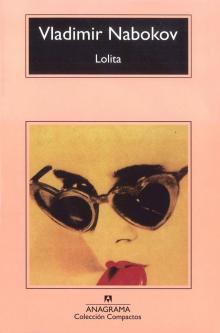 Lolita
Lolita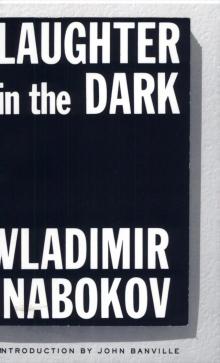 Laughter in the Dark
Laughter in the Dark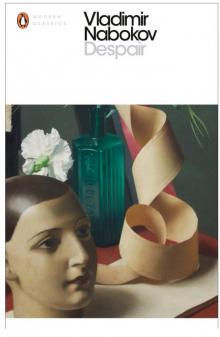 Despair
Despair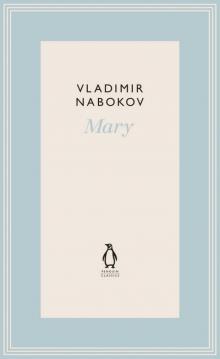 Mary
Mary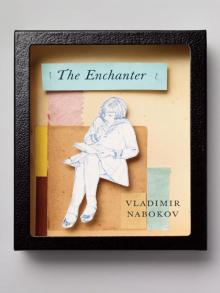 The Enchanter
The Enchanter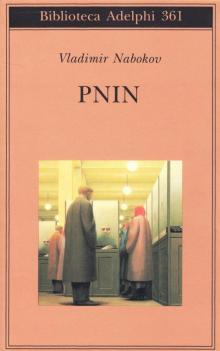 Pnin
Pnin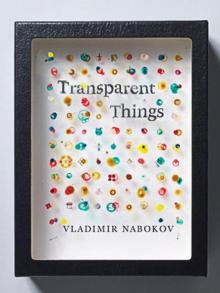 Transparent Things
Transparent Things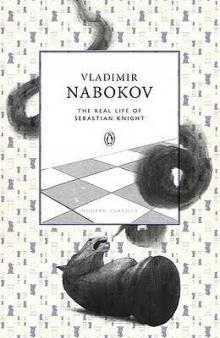 The Real Life of Sebastian Knight
The Real Life of Sebastian Knight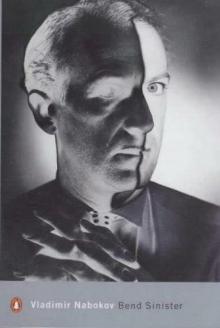 Bend Sinister
Bend Sinister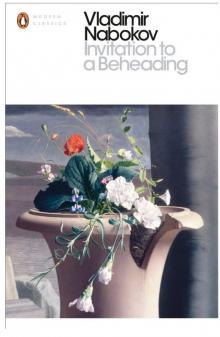 Invitation to a Beheading
Invitation to a Beheading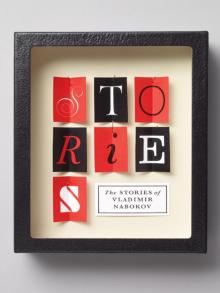 The Stories of Vladimir Nabokov
The Stories of Vladimir Nabokov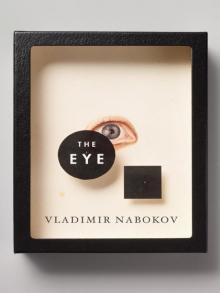 The Eye
The Eye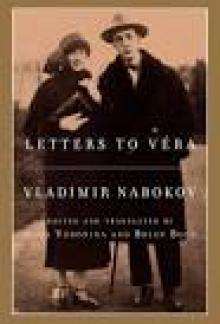 Letters to Véra
Letters to Véra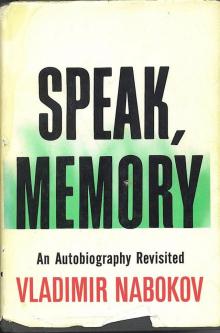 Speak, Memory
Speak, Memory The Gift
The Gift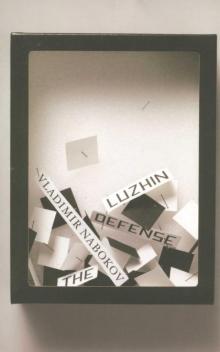 The Luzhin Defense
The Luzhin Defense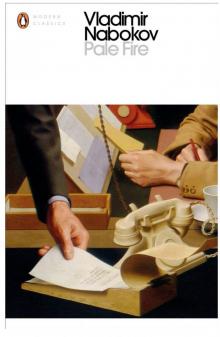 Pale Fire
Pale Fire Glory
Glory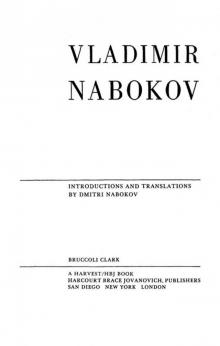 Man From the USSR & Other Plays
Man From the USSR & Other Plays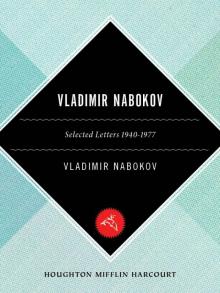 Vladimir Nabokov: Selected Letters 1940-1977
Vladimir Nabokov: Selected Letters 1940-1977 Strong opinions
Strong opinions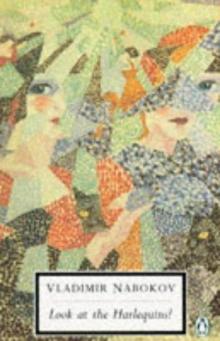 Look at the Harlequins!
Look at the Harlequins!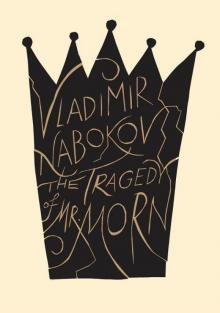 The Tragedy of Mister Morn
The Tragedy of Mister Morn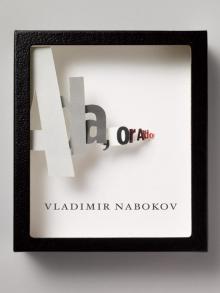 Ada, or Ardor
Ada, or Ardor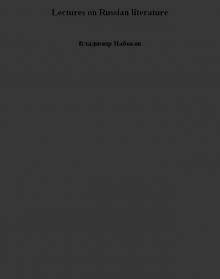 Lectures on Russian literature
Lectures on Russian literature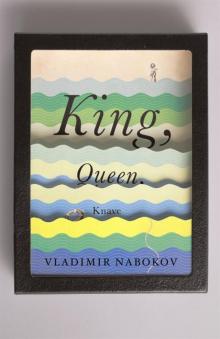 King, Queen, Knave
King, Queen, Knave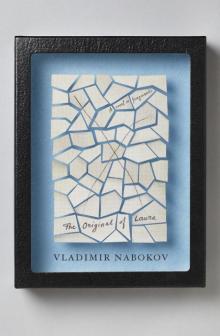 The Original of Laura
The Original of Laura